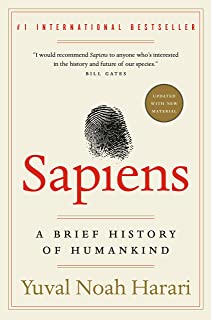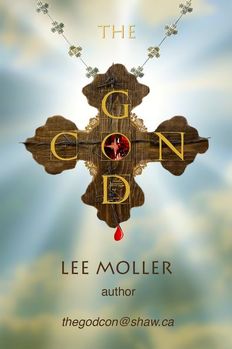 "The wandering bands of Sapiens storytellers were the most important and destructive force the animal kingdom ever produced." This phrase appears early in book. It is another book about the rise of human kind on this Earth. It is similar to Guns, Germs and Steel and A Brief History of Everything. I read it mostly for the early history: the invention of languages, stories, religions, gods and kings and such. In that respect it delivered. One myth the book explodes is the idea of primitive cultures as being more in touch with and more cooperative with nature. It is not true. Every human group, everywhere, wasted no time in bending the environment to its one uses, and grabbing all the low hanging fruit as fast as they could, lest the other guy get it. Think the death of the North American mega fauna and the hands of the native populations. It takes on what the author calls "romantic consumerism"… the general idea that you life is best served by jetting all over the world and getting exposed to as many cultures as possible. It also attacks cultural relativism for the evil that it is. The author made an interesting observation about religions in general. They can be broken down into three gross categories: Many gods (polytheism); Two gods (dualism); And one god (monotheism). Polytheism is marked by a laid back attitude. If you meet someone who believes in another god, no problem. You just add it to the list. Dualism is marked by conflict: Creator versus destroyer; good versus evil; heaven versus hell. Monotheism (i.e.: the big three) is awash in the blood of the non-believers. Roman Catholicism is kind of an odd-man-out. They believe in one god with three faces (father son and holy ghost). They embrace dualism with God versus Satan. And they are also polytheistic in that they have hundreds of saints, and each saint has its followers. Practically speaking, "saint" is just another word for demigod. The author uses the phrase "the exception that proves the rule" incorrectly and more than once. Truth be told, few people know how cliché is intended to work. It has some interesting observations about money and credit. The author argues that the British obtained global imperialist domination over France because they paid their bills and were a good credit risk. Credit at the time was a new concept that the French failed to appreciate. The last few chapters get into philosophy, happiness, and extrapolating the modern world out into the future, a most dangerous game. An easy read, with the occasional bit of humor.
0 Comments
Leave a Reply. |
AuthorLee Moller is a life-long skeptic and atheist and the author of The God Con. Archives
May 2024
Categories
All
|

 RSS Feed
RSS Feed